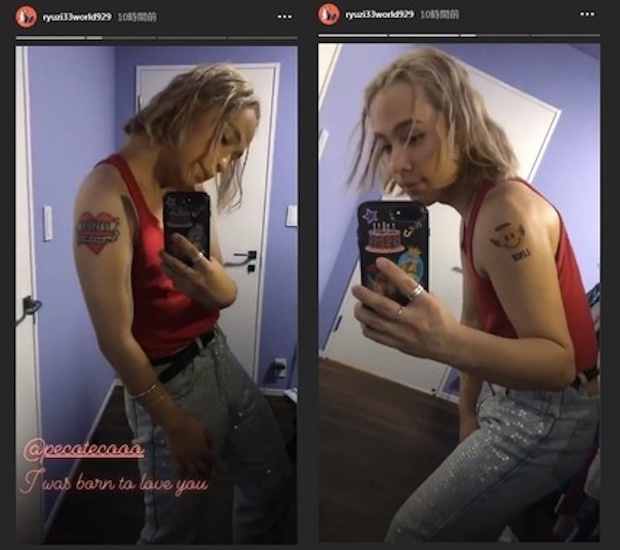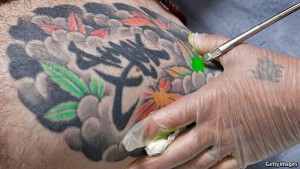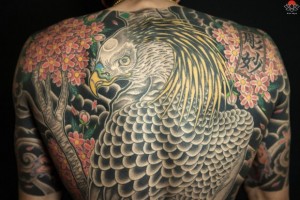Japan’s troubled relationship with tattoos continues with a new minor scandal when the celebrity Ryucheru posted selfies on Instagram of his new tattoos on August 19th.
Ryucheru (Ryuji Higa) is a 22-year-old, Okinawan-born model, married to the model Tetsuko Okuhira (Peco), and regarded as part of a growing genderless street fashion movement in Japan.
As his selfies revealed, he has had two tattoos featuring, respectively, his wife and child’s names on his arms.

Some users said that tattoos were not a suitable way for a father to express his love for his family. Ryucheru responded to the online criticism with an Instagram post asserting his sincerity, explaining that far from being a whim, he had been planning to get such a tattoo for three years. Ryucheru previously released a music video as a tribute to his son, Link.
Japan has a long and impressive history of tattoo art. However, in more recent times, tattoos have become associated erroneously with the Yakuza. While the Japanese mafia certainly does have its own tattoo culture, it does not mean that people with tattoos are exclusively part of this world.
Increasing numbers of celebrities — perhaps most prominently, Namie Amuro — and young people have also got inked, creating an issue of tolerance and acceptance in society where tattoos are banned from public bathhouses, swimming pools, and other facilities, ostensibly as a way of keeping criminal elements out (or at least, being seen to keep them out).
Problems also emerge when this black-and-white rule clashes with the arrival of foreign visitors, whose numbers have rapidly increased the past few years. In American and Europe, in particular, it is commonplace for people to get tattoos and does not indicate anything about the person’s social status per se. However, many inked tourists may find themselves inexplicably barred from enjoying most of the nation’s premier hot springs and baths on the grounds that they might be a member of the Yakuza — simply because they have a tattoo visible on their body. However, resources are available for beating the rules against tattoos at bathing sites as well as a range of practical tattoo covers.
There are signs that attitudes towards tattoos are slowly changing and Ryucheru has now also made his own contribution to this gradual shift in the direction of tattoo tolerance, perhaps in a similar way that he is helping to transform ideas about gender.
























